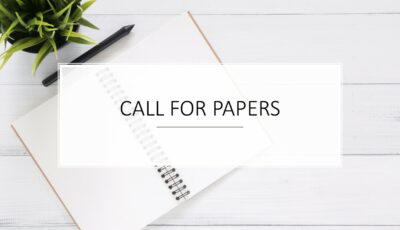CfP: Postsocialist Transformation as a World of Meaning: Domination, Agency and Sense-making

12–13 February 2026, Vila Lanna, Prague
Submit abstracts (max 300 words) and a brief biographical note by 15 September 2025 to:
transformace@usd.cas.cz.
More than three decades after the fall of state socialism in Europe, the liberal democratic, capitalist regimes that emerged in 1989 face new and growing challenges. The post-1989 liberal order—once broadly accepted—now finds itself in a moment of crisis. But how deep did that original acceptance run? What meanings did people attach to the new political, economic and social arrangements? How did they navigate and make sense of these transformations in everyday life?
This exploratory conference seeks to open a new perspective on postsocialist transformation in Eastern Europe —not just as a political and economic process, but as a „world of meaning“ shaped by the complex interplay of domination and agency. We draw inspiration from conceptual approaches used in the study of state socialism and communist dictatorship, particularly the ideas of Sinnwelt (world of meaning) and Eigensinn (individual sense-making), to ask fresh questions about how the post-1989 order was lived, legitimated, adapted—and sometimes resisted—by those within it (Lüdtke 1993; Lindenberger 1999; Donert, Kladnik and Sabrow 2022).
We invite proposals for papers that explore how people navigated, internalized, or challenged the shifting norms, values, and ideals of the new postsocialist order and are interested in perspectives that take into account the lived experience of different social, age, gender and ethnic groups. We are particularly seeking contributions that examine how the legitimacy of the liberal democratic order was constructed in everyday life, beyond official discourses and binary frameworks of „winners and losers.“
We invite papers that explicitly engage with Sinnwelt and Eigensinn on topics such as:
Prepolitical sources of legitimacy and how they were accepted, challenged or transformed
Everyday practices of navigating new power structures (in workplaces, institutions, etc.)
The persistence, adaptation or rejection of late socialist social strategies
The relationship between hegemonic ideologies and lived experience across different social groups
The market as a site of both domination and self-realization: how different kinds of capitalism shaped moral expectations, subjectivities, and life trajectories
The market as a political order: how market logics replaced or supplemented traditional forms of governance and legitimacy
Conceptual and theoretical approaches to postsocialist meaning-making, including comparisons with state socialist frameworks
We also welcome contributions that explore how the concepts of Sinnwelt and Eigensinn relate to frameworks such as governmentality (Foucault), praxeology (Bourdieu), or Polányi’s concept of the “great transformation” in the study of postsocialist transformation.
The conference is organized as a collaborative, work-in-progress space. Participants will be expected to develop their contributions into written chapters for a collective publication following the event.
We look forward to your submissions and to collectively rethinking how postsocialist transformation has shaped—and continues to shape—our worlds of meaning.
Travel and accommodation costs for participants will be covered.
Conference organizers:
Dr Martin Babička, Institute of Contemporary History of the Czech Academy of Sciences
Dr Veronika Pehe, Institute of Contemporary History of the Czech Academy of Sciences
Dr Michal Kopeček, Institute of Contemporary History of the Czech Academy of Sciences
Organizational partners:
Hannah-Arendt-Institut für Totalitarismusforschung, TU Dresden
Research Center for the History of Transformations, University of Vienna
This conference is supported by the Lumina Quaeruntur Award 300632301 of the Czech Academy of Sciences.
